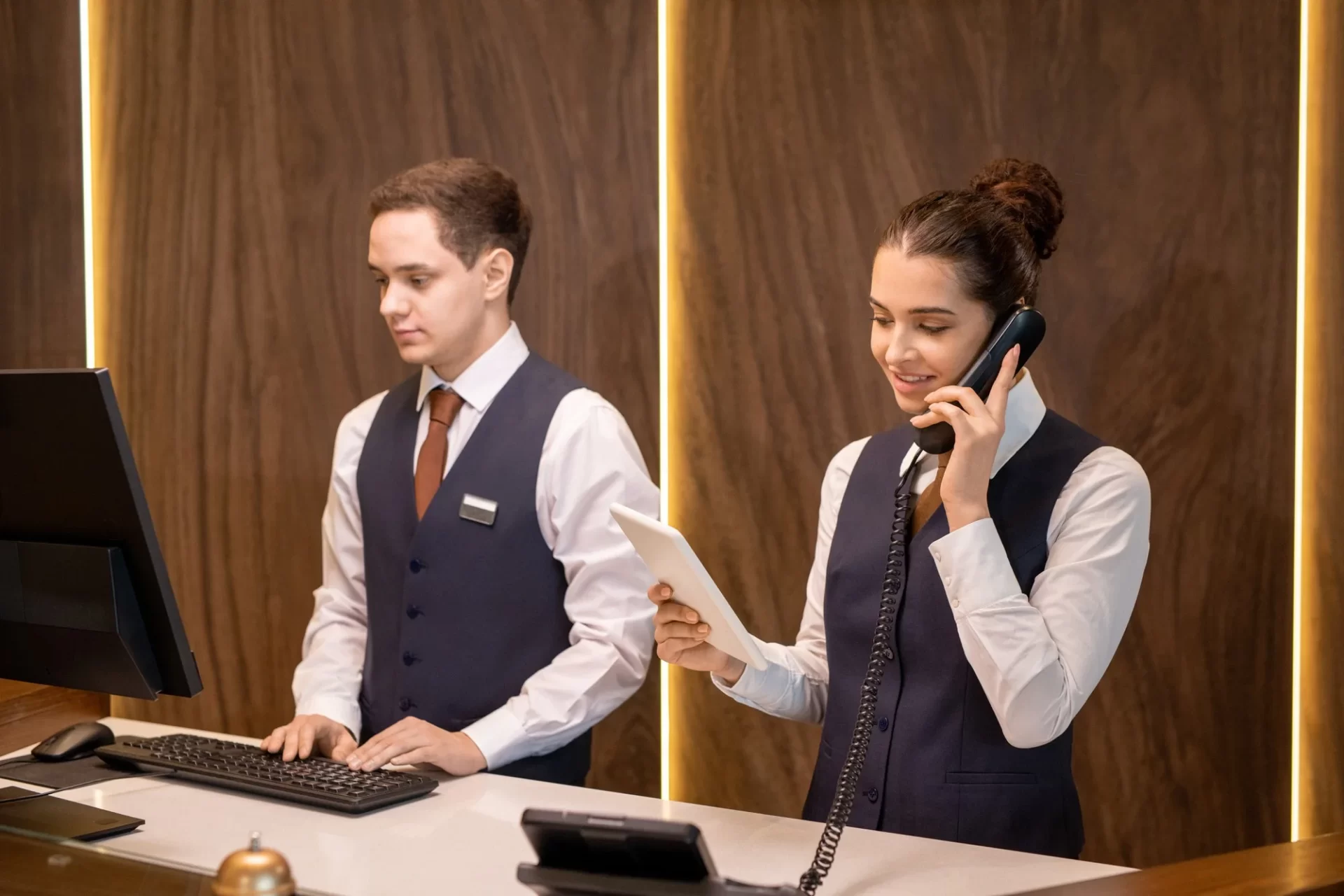
The hotel industry is constantly evolving, adapting to new traveler demands and preferences. In 2023, Europe is experiencing several key trends that are shaping the hotel experience. From welcoming digital nomads to embracing wellness tourism, technology for spas and wellness, the deployment of technological innovations in hotels and the adoption of transformational marketing, here’s a look at the trends that will define the European hotel industry this year.
With the rise of remote working and flexible businesses, a growing number of professionals have become digital nomads, working remotely from anywhere in the world. This development has opened up new prospects for the hotel industry, which has seized this opportunity by offering tailor-made workspaces equipped with high-speed internet connectivity, guaranteeing reliable connections for professionals on the move. In addition to accommodation, hotels also offer fully-equipped meeting rooms, enabling digital nomads to hold professional meetings and collaborate remotely. To meet the specific needs of this clientele, tailored concierge services have been set up, offering services such as time management, travel arrangements and local information retrieval. These initiatives enable digital nomads to reconcile their work with their itinerant lifestyle, offering a turnkey solution for their professional needs while ensuring a comfortable environment conducive to productivity.
Well-being has become a top priority for many travellers, and this trend was amplified in 2023. European hotels have responded by investing heavily in wellness infrastructure and services to meet this growing demand. It is now commonplace to find luxury spas within establishments, offering a varied range of relaxing and therapeutic treatments. Fully equipped fitness centers have also become commonplace, enabling customers to maintain their exercise routine even while traveling. Yoga and meditation programs are offered to promote relaxation and mental release, while balanced menus and healthy dining options meet the expectations of health-conscious travelers. European hotels recognize the importance of these wellness offerings, not only to satisfy guests’ needs, but also to stand out from the competition and offer a holistic, enriching experience to their guests.
The integration of technology into the hotel experience is undeniably a major trend in 2023. Spas and wellness centers are no exception, embracing technological innovations that are revolutionizing the industry. Among these advances are virtual reality therapies that enable customers to enjoy immersive, relaxing experiences, offering a virtual escape to soothing destinations. Robot-assisted massages are also making their appearance, offering precision and consistency of movement, delivering therapeutic benefits to customers. In addition, health-tracking devices, such as smartwatches and sensors, enable customers to monitor their well-being and adapt their wellness programs accordingly. Mobile apps play a key role in this evolution, offering customers the ability to personalize their experience, book services, view treatment information and benefit from personalized follow-up. These technological advances not only enhance the guest experience by offering innovative options, but also help to optimize the operational efficiency of hotel establishments, enabling smoother management of reservations, payments and guest follow-up.
Indeed, in addition to their focus on wellness-focused technology, European hotels are increasingly adopting technological innovations to enhance the overall hotel experience. Online check-in simplifies the arrival process for guests by allowing them to check in in advance, reducing formalities on arrival at the hotel. Digital keys are also making an appearance, offering guests the ability to unlock their room using their smartphone, eliminating the need for physical keys. Intelligent voice assistants, such as connected speakers, are increasingly present in hotel rooms, allowing guests to control various room features, such as lighting, air conditioning and entertainment, simply by using their voice. Live chat services facilitate communication between guests and hotel staff, allowing them to ask questions, make service requests and receive information instantly. Intelligent lighting and air-conditioning systems automatically adjust settings according to guests’ preferences, offering personalized comfort. All these technological innovations aim to enhance the guest experience by offering a more convenient, personalized and interactive stay, while optimizing hotels’ operational efficiency.
In 2023, marketing in the hotel industry is undergoing a significant evolution. Hotels are adopting a more transformational approach, focusing on creating memorable, emotional experiences for their guests. Storytelling is becoming a key tool, enabling hotels to tell unique and captivating stories that engage and excite travelers. Marketing campaigns become interactive, actively involving customers and inviting them to participate in contests, surveys or special events. Hotels are also using immersive experiences to set themselves apart from the competition, offering 3D virtual tours, 360-degree videos and augmented realities to give guests a realistic glimpse of what to expect during their stay. This transformational approach to marketing aims to create an emotional connection with customers, engaging them interactively and arousing their curiosity, in order to build loyalty and encourage them to share their positive experiences with those around them.


